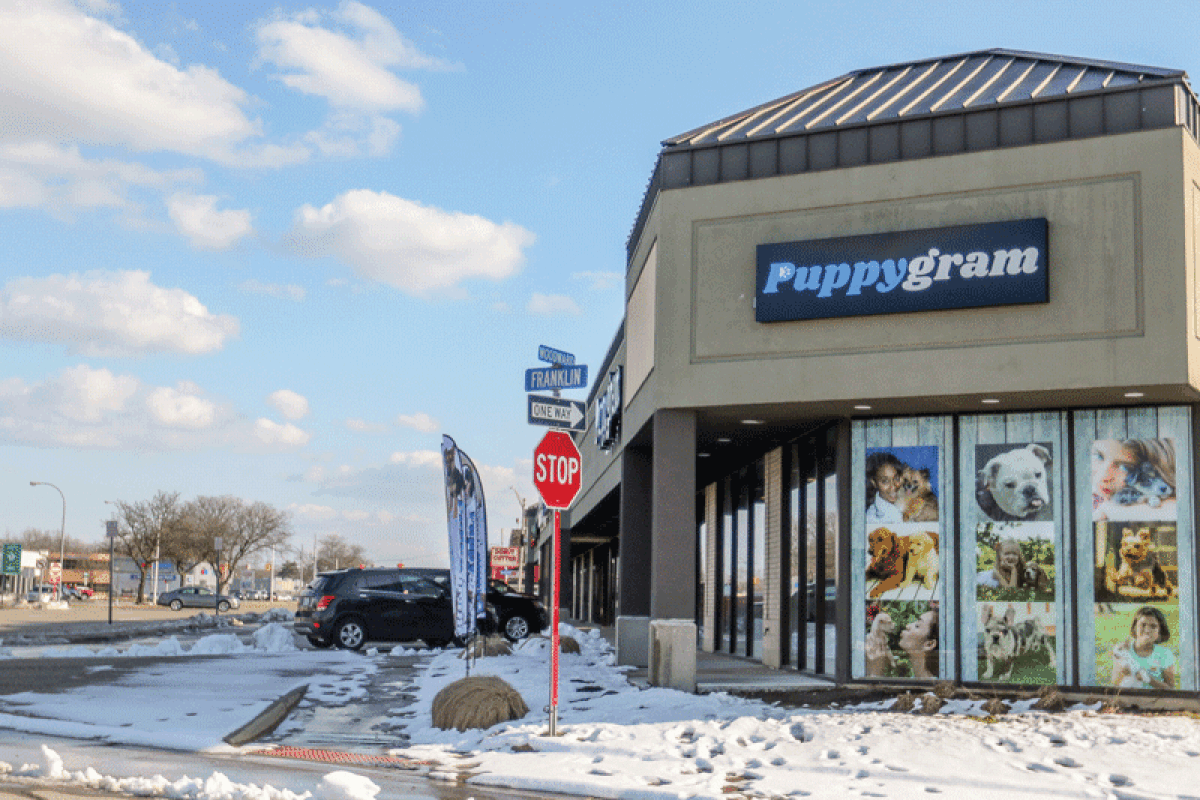BERKLEY — The Berkley City Council has approved the first reading of an ordinance that would prohibit the sales of dogs, cats and rabbits at retail stores.
At its July 17 meeting, the council passed 4-1 an ordinance that would not only prohibit future businesses from establishing in Berkley to sell dogs, cats and rabbits, but also would “phase out” the business model of one established pet store.
The council also approved at the meeting a resolution that supported a bill, HB 4838, in the Michigan House of Representatives that would follow similar guidelines.
“An act to regulate pet shops, animal control shelters, and animal protection shelters; to establish uniform procedures and minimum requirements for adoption of dogs, cats, and ferrets; and to prescribe penalties and civil fines and to provide remedies,” the bill’s language reads.
“What this ordinance would do is it would prohibit retail sale of dogs and cats at pet stores in Berkley,” City Attorney John Staron said. “It would prevent any new stores from opening, any expansion of stores for dogs and cats. Actually, I think we cover rabbits now too. … In addition, with regard to the one existing store that was lawfully opened in the city, that would be phased out over a period of time.” A proposed phase-out date from the city was July 1, 2025.
According to the city’s proposed ordinance, it does not “prohibit a retail pet store from collaborating with and providing space to an animal protection shelter or an animal control shelter to showcase dogs, cats, or rabbits available for adoption on a not-for-profit basis. The retail pet store may not charge or retain an adoption fee or any other fee for providing space to showcase any such dog, cat or rabbit.”
On the issue of existing retail pet stores, which in Berkley affects Puppygram, located on Woodward Avenue north of Catalpa Drive, the ordinance states that a retail pet store that is in compliance and good standing with state laws and city ordinances may temporarily continue to sell or offer for sale dogs, cats or rabbits at that store through and until the set phase-out date. The business can only source animals from breeders with a United States Department of Agriculture license, it must not source or obtain animals from a breeder, broker or transporter who has been charged or has been convicted or determined to be responsible for a crime, as well as other set guidelines.
The ordinance received support from a number of people who spoke at the meeting, including resident Carla Osborne, who said the ordinance is a good safety net for Berkley in case the state law falls through.
“I would love to see (the changes) happen immediately, but I know that that’s just not feasible and can cause a lot more issues,” she said.
Resident Charles Tyrrell found the phase-out to be problematic and sees that section of the ordinance leading to litigation for the city, and he said that the business should be grandfathered in.
“Let him be,” he said. “If it’s such a bad thing what he’s doing, he won’t be in business long. Just let it go. Take that whole part out about restructuring his business and putting him out of business by a date to be determined. Leave that piece of it out. If you want to prohibit the retail sale of puppies, kitties and rabbits, go ahead, but the other part of it, about closing down his business, is just plain wrong.”
Councilman Steve Baker was the only member in attendance who voted no on the first reading, though he stated he was in support of the intent of the ordinance as a whole. Council members Jessica Vilani and Greg Patterson were not in attendance at the meeting.
“To the expiration date, you know this would give them effectively two years to continue with their current business model, and to me as we’ve heard, every day matters, every day matters to these animals, and to think two more years of this is just, it’s very difficult for me,” Baker said. “So if there’s some way to help encourage them to transition their business model in a far shorter time frame, I’d be in support of that. The two years, I understand the rationale. It certainly makes sense intellectually, but emotionally it’s very, very difficult for me.”
Puppygram CEO Miles Handy was unaware of the ordinance’s first reading when asked about it by the Woodward Talk on July 23.
Handy said he was surprised by the ordinance’s appearance before the council, as it had been slightly more than two months since the moratorium was approved for six months to study the issue, and that the city didn’t reach out to notify him about what it was proposing.
On July 31, the city provided an email that it sent on July 11 to info@puppygram.com attempting to notify Handy of the ordinance and meeting. Handy stated the business went through the emails to the address, which he said was a customer service email address, and that the emails didn’t include a correspondence from the city on that date.
Handy believes the city would like for him to change Puppygram into a dog rescue or an animal shelter.
“We would not have opened in the city of Berkley and rehabbed a building that’s been vacated for nearly a decade without going to the city first and making them aware of our business model,” he said. “Then two weeks prior to opening, they started this ‘wanting to ban our business’ after all the rehab and the capital improvements were done. There is no way that we can recoup our investment in 24 months of phase-out. That’s anti-small business. And frankly, it’s anti-individual choice.”
The building had been vacant since Feb. 1, 2019, according to the city.
Handy commented on the possibility of litigation.
“Needless to say, we’re not going to let the city of Berkley bully us, a small business,” he said.
The City Council will need to hold a second reading of the ordinance with another vote of approval for it to pass. Though the agenda is not set, the next council meeting is scheduled for 7 p.m. Aug. 14 at City Hall.
 Publication select ▼
Publication select ▼




















